How Overnight Hikes Shaped my Journey as a Hiker
There’s a unique kind of satisfaction that comes from pitching your tent under a sky full of stars, miles from the nearest road or vending machine. After a long day of climbing ridgelines, crossing streams, or simply putting one foot in front of the other, you unzip the tent fly to a quiet world and realise—you’ve earned this moment. It’s not just about reaching a destination; it’s about the journey and the quiet that follows.
Not too long ago, I celebrated a milestone: 150 published hiking trail guides on Ridgeline Images. Of those, 59 were multi-day adventures—roughly 40%. But the more revealing number is the nearly 250 hiking days those trips represent and the 150+ nights I’ve spent sleeping outdoors. These multi-day hikes have not only been the most enjoyable for me but also transformative. They’ve shaped who I am as a hiker and taught me lessons no guidebook ever could. They’ve been the way I’ve truly gained experience on the trail.
From Day Hikes to Days in the Wild
While day hikes certainly have their place—perfect for quick escapes when time is limited or for testing new gear—it’s the overnight treks that offer something deeper. Especially those stretching three days or more. On that middle day of a longer trip, when there’s no pressure to reach a trailhead or catch a bus, time seems to expand. You’re no longer bound by schedules or destinations; you simply walk, explore, and exist within the landscape. And that’s when the hiking experience truly comes into its own.
I was reminded of this most recently on a hike to Mt. Hirugatake in Yamanashi. While it could have been tackled as a day hike, the experience was far better appreciated by spending a mild spring evening camped besides the Lake Shibire lakeshore, with cherry blossoms in full bloom. With that kind of atmosphere on offer, why rush back to civilisation?
From Huts to Tents: Finding My Freedom
My first two overnight hikes were spent in mountain huts (山荘), and they were perfectly fine—clean, well-run, communal spaces that offered shelter and companionship. But it wasn’t until my third multi-day hike—when I swapped a futon for a sleeping mat and wild camped for the first time—that I understood what I’d been missing.
A quiet night alone in a tent, tucked away in a remote valley far from clanging dinner bells and the collective wheeze of other hikers, changed everything.
That was my turning point. Tents equalled freedom—a chance to choose my own campsite if need be, linger by a rocky outcrop at sunset, or wake to birdsong instead of chatter. From that moment on, there was no going back.
The Experience of Camping
Camping out is more than just a way to sleep—it’s an experience in itself. Like hiking in different seasons or weather conditions, sleeping outdoors teaches you how to adapt, listen, and truly be present. It invites you to disconnect from screens and schedules and tune into the subtle shifts in light, temperature, and mood that unfold over 24 hours in nature.
It also introduces challenges that push you outside your comfort zone: navigating in misty conditions, setting up camp in strong winds, finding water sources, or keeping your spirits up when everything is damp. These moments test your resilience but also make you a more capable and confident hiker—one who can handle discomfort yet find joy in simplicity.
And then there are the unforgettable rewards: waking up to a quiet morning with frost on your tent and watching the first light of sunrise on Mt. Fuji or distant ridgelines. Falling asleep to the sound of rain on your tent while warm in your sleeping bag. Or lying under an endless canopy of stars with only cicadas around. These are experiences you simply can’t get on a one-day hike—or even inside a mountain lodge.
The Continuity of Overnight Hikes
Single-day outings often feel rushed—not because of the walking itself but because of everything else around them. You hurry to catch an early train or drive long distances, hike for hours, then rush back to civilisation just as your body begins settling into the rhythm of nature. It’s like tasting an appetiser but never staying for the main course.
Overnight hikes offer continuity—a stretch of uninterrupted time where nature becomes your home rather than just an escape. There’s no need to rush back; instead, you can fully immerse yourself in each moment without worrying about what comes next.
Longer multi-day hikes, such as those in the Northern and Southern Alps or even closer to home, like the Okuchichibu Grand Traverse, are truly unmatched in their depth and reward.
Why They’re Worth It
Yes, overnight hikes demand more planning and effort than day trips—they require carrying heavier packs, learning new skills like pitching tents or cooking outdoors, and dealing with the unexpected. But they also give so much more: more peace, more perspective, and more stars overhead at night.
Sure, there are the occasional downsides. At official campsites, this might mean having to book ahead during busy periods or being squeezed in within an inch of your life (still preferable, mind you, to whiling away the night in a stuffy hut). With wild camping, it might be the sudden bleat of a deer outside your tent (their numbers, admittedly, have gotten a bit out of hand in recent years) or the need to haul in extra water to remote spots. But those are small concessions for what you get in return.
In today’s world—where distractions are constant and our connection with nature often feels fragile—overnight hikes offer something rare: a moment to slow down, think clearly, and remember what it feels like to simply be.
And that’s why they’re not just worthwhile—they’re essential.

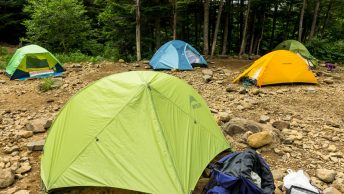
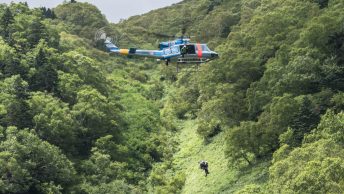
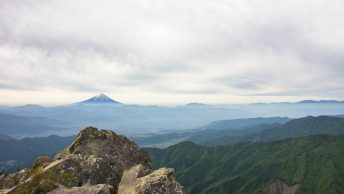

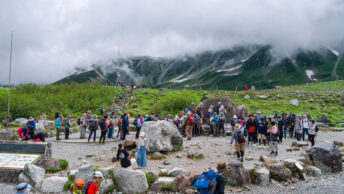
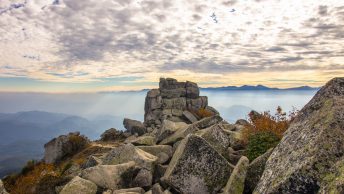
Have you ever had any unfortunate experiences with wildlife whilst camping out overnight? I know you mentioned deer briefly.
Not really anything I’d call unfortunate, thankfully. Though on one occasion, a Japanese badger (anakuma) almost wandered into my tent in the middle of the night. Gave me a bit of a surprise, but it scurried off as soon as it realised I was there. Deer are definitely the more common nighttime visitors, always rustling around and making you think something much bigger is approaching!